Livorno
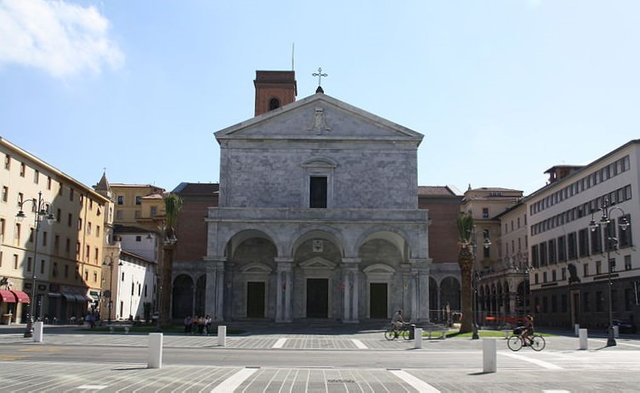
In December 2017, during a short holiday in Pisa, I took a day-trip to the Mediterranean port of Livorno. I was always curious about this Italian city with the strange name. Leghorn, as it is traditionally known in English, is only 10 km from Pisa—about twenty minutes by train.
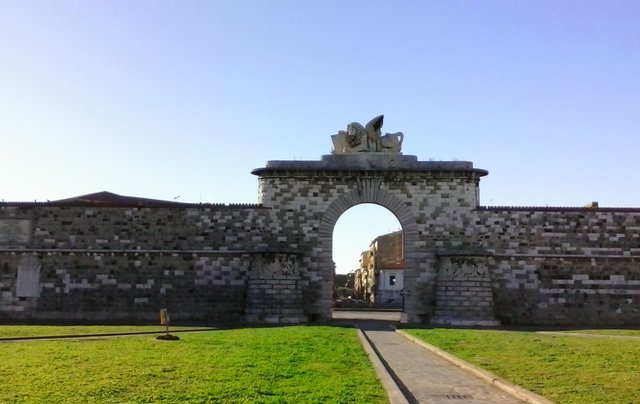
Livorno is an ancient place but it was during the Medicean Period (1434-1737) that it rose to prominence. When the port of Pisa silted up in the 13th century and the once coastal city found itself landlocked, Livorno inherited its mantle as Tuscany’s principal port.
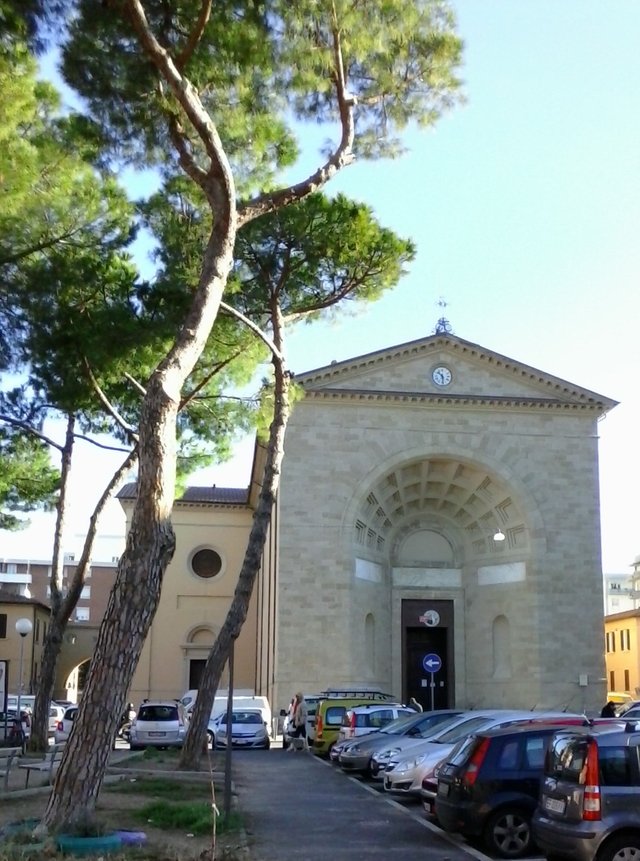
Livorno is a bigger and busier place than Pisa. There was much more traffic during my short visit, and it was noticeably more crowded compared to its historic neighbour, Pisa, which was actually very quiet one week before Christmas.
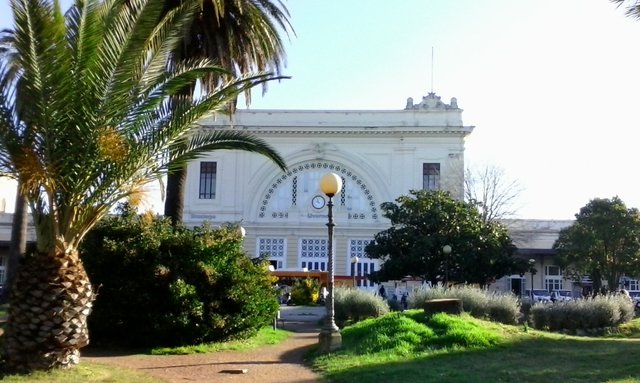
Unlike Lucca’s central station, which is literally across the street from the old town, the main train station in Livorno is about 2 km from the city’s main attractions, so some walking through the suburbs was required.
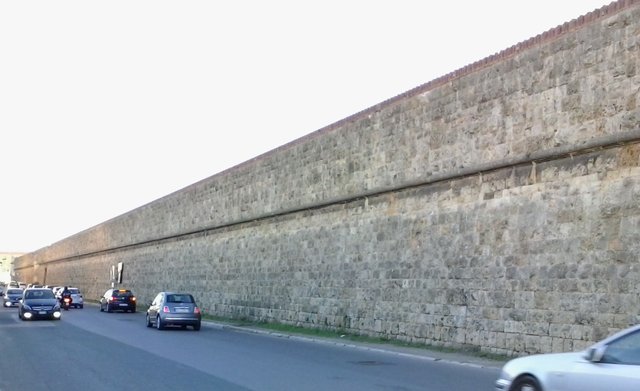
Several stretches of Livorno’s historic walls survive, but the Leopoldine Wall was not built to defend the city from attack. It was erected in the 1830s to protect the port from smugglers. It is named for Leopold II, Grand Duke of Tuscany.
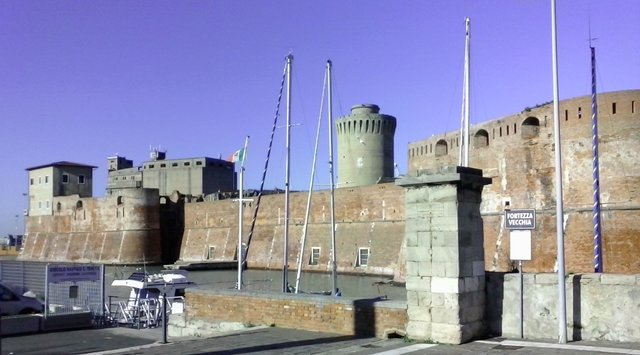
The Old Fortress was built between 1518 and 1534. Cardinal Giulio de’ Medici commissioned the work a few years before he became Pope Clement VII.

The Old Fortress was completed by Alessandro de’ Medici, who is rumoured to have been Clement’s illegitimate son.
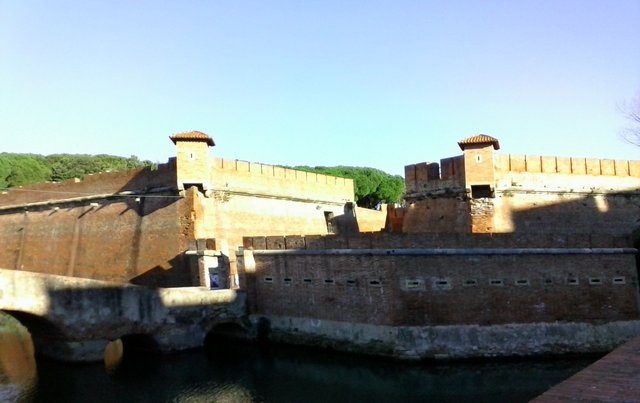
The New Fortress was also built during the Medicean Period, between 1590 and 1604. The interior is now occupied by a small public park.

Livorno’s principal square, which was first laid out in 1840, has been known by several different names—Piazza del Voltone, Piazza dei Granduchi, Piazza di Carlo Alberto di Savoia—before acquiring its present name in 1946, when Italy became a republic.
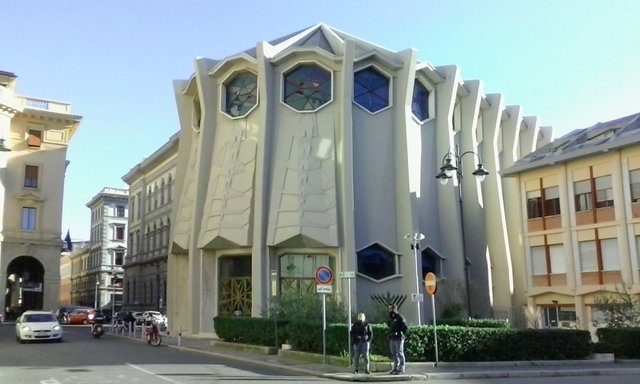
Livorno’s Jewish community dates back to the late 16th century, when the city was settled by descendants of Sephardic Jews expelled from Spain by Ferdinand of Aragon and Isabella of Castile. The modern synagogue (1962) replaced the original 17th-century structure, which was severely damaged during the Second World War.
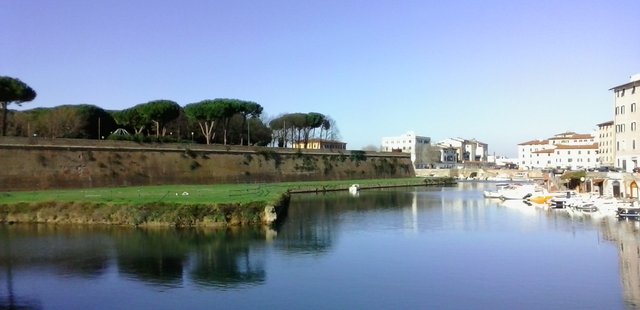
Venezia Nuova, or New Venice, was established in 1629 by Ferdinando II de’ Medici in the part of the city between the two fortresses.
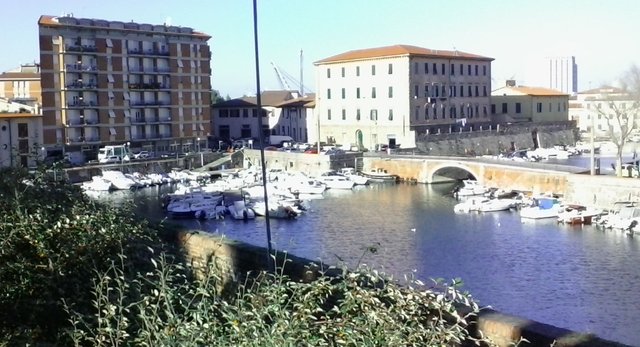
Venetian engineers were employed in the construction of Venezia Nuova.
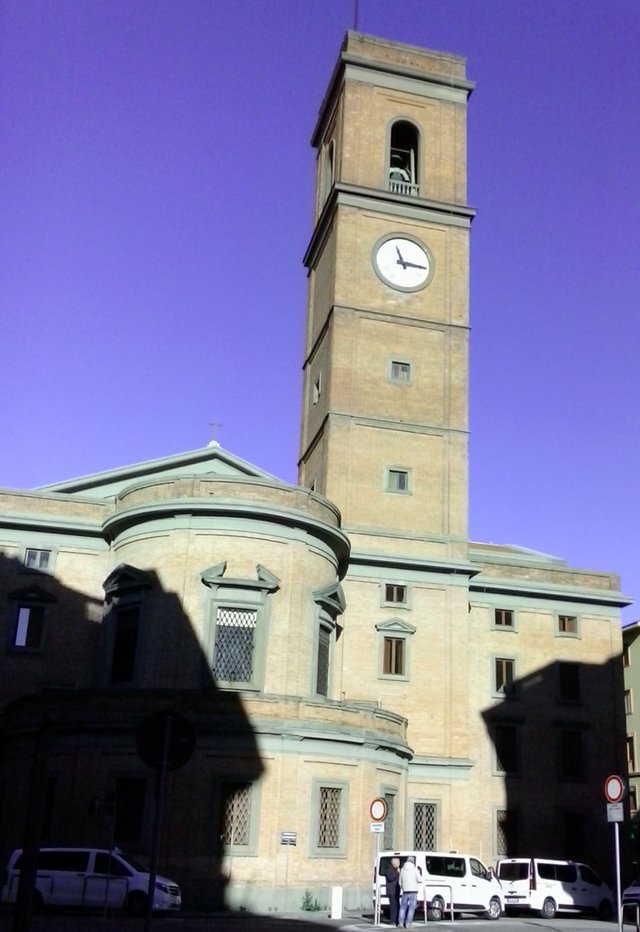
Livorno’s Cathedral of St Francis of Assisi dates from the late 16th century, but the present structure is a reconstruction of the original, which was totally destroyed in 1943 during an air raid. The front of the building can be seen above, in the first photograph. I was making my way back to the station to catch a train when I snapped this photo of the rear, not realizing what an impress site the Piazza Grande presented on the other side of the building.
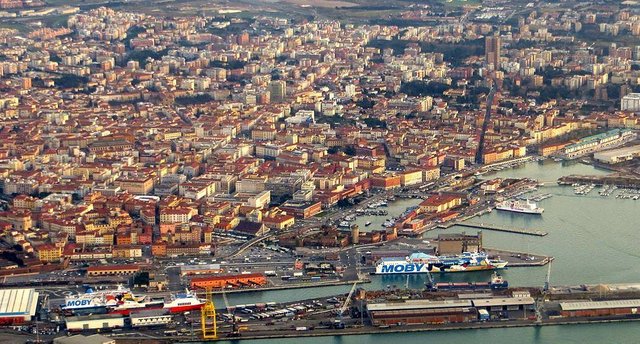
Unlike Lucca, which is small enough to be thoroughly explored in a single day, Livorno is too large a city for a daytrip. To fully appreciate the history of this place and to take in all its sights, one should plan on staying at least a week.
Image Credits
- Piazza Grande and the Cathedral of St Francis of Assisi: Wikimedia Commons, © Piergiuliano Chesi, Creative Commons License
- Livorno from the Air: Wikimedia Commons, © Luca Aless, Creative Commons License
All other photographs were taken by me and are in the Public Domain: Kopimi

This is so good and looks like a lot of fun.
What a beautiful city in italy! Excellent photo shots. Thanks for sharing us travel memories.
Wao nice great bro keep it up
good post bro
Great post! I was born in Livorno, I live on Elba island now, I don't know if you've been there!
historical country.
beautiful country too..❤️
what a click, thats excellent.
@upvote done
i eagerly read your post to learn & acquire knowledge...thank you..
@upvote done
Beautiful italy. I want to visit there.
Very nice post dear buddy. Love you.
what a beautiful scenary.👌👌like your post bro
@upvote